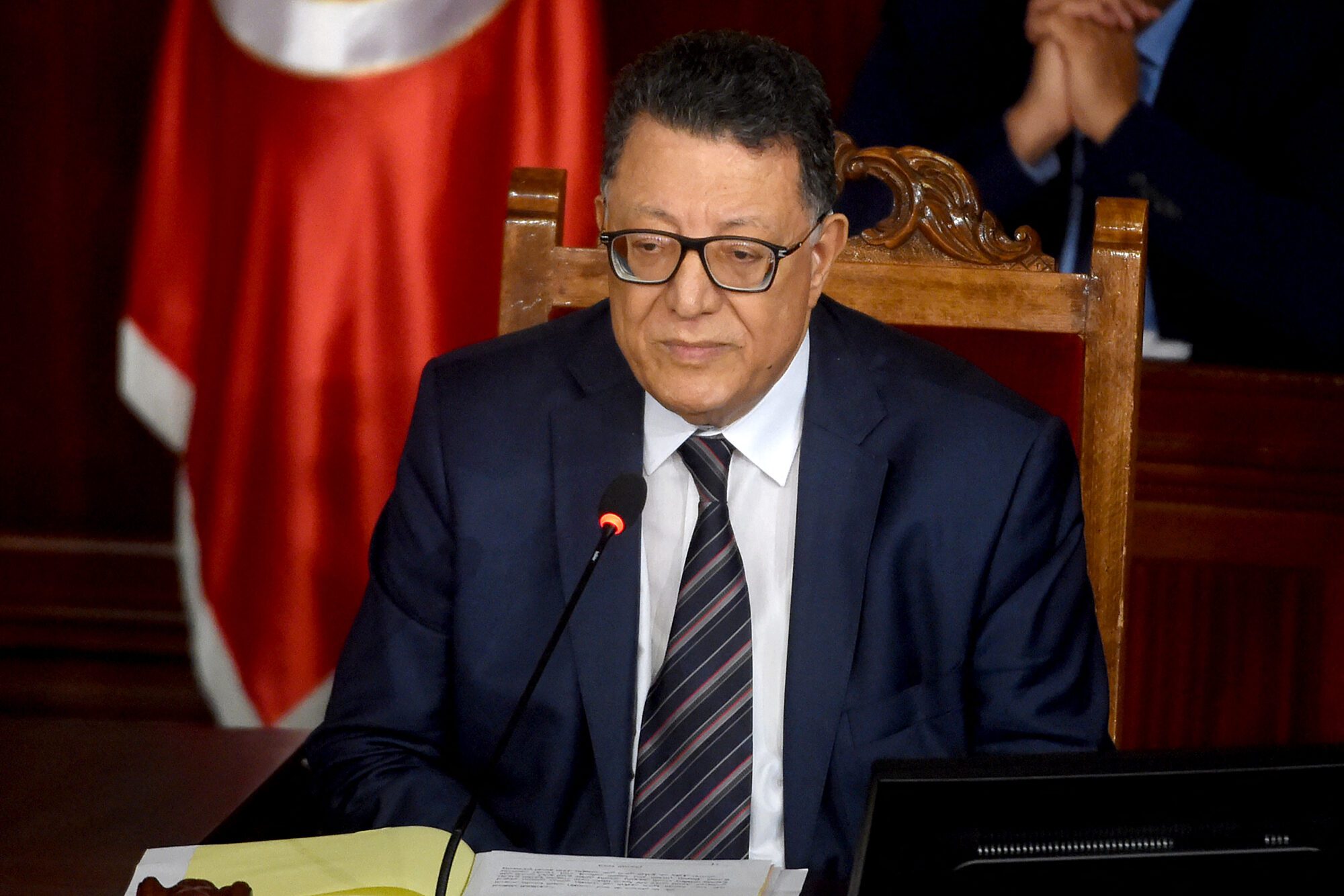
Tunisian parliament President Brahim Bouderbala attends the opening of the plenary devoted to the criminalisation of normalisation with Israel on November 2, 2023 in Tunis.
Photo: Fethi Belaid / AFP
Lawmakers in Tunisia have proposed a bill that could criminalise Tunisian nationals for having any relations with Israel, including simply communicating with Israelis, and promising harsh punishments, including life in prison for repeat offenders.
The proposed law was to be debated last week but was pushed back after Tunisian President Kais Saied told the speaker of the Tunisian parliament that the law could harm the country’s security, Anadolu Agency reports.
The comments come despite Saied being a vocal supporter of the Palestinian cause, with the president stating earlier this year, “It is Tunisia’s duty to stand by the Palestinian people in the cause of liberation. They are fighting to regain their full rights.” He has also previously claimed that normalisation of relations with Israel would be high treason.
The proposed anti-Israel law was drafted by supporters of the Tunisian president and will make it illegal for any Tunisians to normalise relations with Israel, which is defined as “the recognition of the Zionist entity or the establishment of direct or indirect relations.”
The law would not just cover individuals but would also apply to “institutions, organizations, governmental or non-governmental entities,” and would see violators imprisoned for six to twelve years for “high treason,” with those who repeatedly break the law facing a life sentence.
Speaker Bouderbala stated, “We firmly believe that Palestine must be liberated from the river to the sea,” a common slogan chanted at various pro-Palestine marches that implies the complete destruction of the Israeli state and possibly the killing of the Jews within it.
The American Jewish Committee defines the meaning behind the phrase as:
a common call-to-arms for pro-Palestinian activists, especially student activists on college campuses. It calls for the establishment of a State of Palestine from the Jordan River to the Mediterranean Sea, erasing the State of Israel and its people. It is also a rallying cry for terrorist groups and their sympathizers, from the Popular Front for the Liberation of Palestine (PFLP) to Hamas, which called for Israel’s destruction in its original governing charter in 1988 and was responsible for the October 7, 2023 terror attack on Israeli civilians, murdering over 1,000 people in the single deadliest day for Jews since the Holocaust.
Tunisia is one of many Muslim-majority countries that has never formally recognized the state of Israel. However, the country did have limited diplomatic ties with Israel briefly in the 1990s until 2000 during the second Palestinian Intifada (uprising), when Tunisia broke off all ties.
Before the Hamas massacre of over a thousand Israeli civilians on October 7th, Israel had been making progress with the normalisation of relations with its Arab neighbours, striking a deal with the United Arab Emirates (UAE) and Bahrain in 2021, spearheaded by former U.S. President Donald Trump.
Saudi Arabia also expressed interest in normalising its relations with Israel, with a deal believed to be on the horizon in late September after Saudi Crown Prince Mohammed bin Salman gave an interview stating normalisation was “getting closer every day,” but noted that the issue of Palestine was a major priority for the kingdom.
Following the Hamas massacre of October 7th and the declaration of war by Israel, any potential Saudi deal has been halted entirely.
Tunisia’s proposed law also comes just weeks after one of its most prestigious and historic universities, the Ez-Zitouna University, called on Muslims to support Hamas and its jihad against the state of Israel.
“Support and support for the jihad struggle in Palestine is an individual obligation for all Muslims. … The immediate duty for the Islamic community is to return to the right path,” the university said in a statement.
“We urge the imams to carry out their religious duty from the pulpits to spur unity among the ranks of Muslims in the face of the crusader-Zionist alliance,” the statement said.
